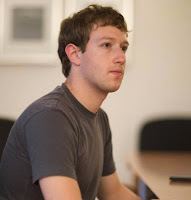
The aliens didn't put up much of a fight against Joaquin Phoenix in Signs, but does Pandora have what it takes to keep its stock price up? The short answer is no. But the more important question is, are investment banking underwriters getting better at pricing IPOs? That answer might be yes. I know this because Pandora, which went from a target IPO of $7-9, then $10-12, eventually IPOed at $16, only to reach $25 on opening day and then close at $13.50 just yesterday (four days after going public). BTIG analyst Richard Greenfield gave the stock a SELL rating on Friday at a price of $5.50, buying it for anything more would be ludicrous.
One thing that is leading to such a steep increase in stock prices on opening day is the limited number of shares these companies are offering in their IPOs. LinkedIn only offered 7-8% of the company's shares and Pandora offered 10%. The standard range is 20-25% for tech IPOs. But in the dot-com boom of the 90s there was a similar case of pent-up demand in tech stocks because the companies were offering a small chunk of their shares with the belief that this drive up demand, and drive up the stock price as a result. Several reports came out saying Morgan Stanley and Goldman Sachs did a horrendous job of pricing LinkedIn's IPO and deservedly so. But keep in mind, this was the first big internet company to go public in recent time. Particularly, the first social media company to go public. They weren't sure how the market would react to a relatively under-the-radar private company. It's no Facebook or Groupon or Zynga. LinkedIn opened at $45/share and went into the hundreds on opening day. Now it's at $69, a price that suggests the underwriters weren't so far off after all.
For more on floats, check out today's WSJ article:
Accounting 101: free cash flow vs. cash flow from operations
Bill Reichert, an early investor in Pandora, was on Bloomberg West last week lobbying his case for Pandora as a company with lots of potential. Cory Johnson of Bloomberg said that the company is free cash flow negative, so positive cash flow from operations is irrelevant. First, let's define these two terms.
Free Cash Flow = cash - investment OR net dividends to shareholders + net payments to debtholders and issuers. In Pandora's case, operations is producing less cash than is needed for new investment, thus free cash flow is negative.
Cash flow from operations = change in cash - cash from financing - cash from investment
OR revenues less all operating expenses.
In Pandora's case, they made $2.7 million from operations the past couple quarters BUT free cash flow was negative with losses near $400 million. Reichert countered Johnson's point by saying that when Pandora is witnessing such tremendous user and revenue growth, a loss in cash is inevitable. But here's the catch, as Pandora keeps increasing users, the price to stream that music goes up because Pandora is being charged by the music label companies. That royalty agreement exists until 2015, at which point Pandora hopes to acquire such a large user base that they have the edge in any negotiations. Many analysts believe the price of royalties will go up even higher which is not good for Pandora. Greenfield's SELL rating for Pandora came as a result of a couple things. One is the royalty agreement, two is the number of competitors entering the online music space (Spotify, Apple, Amazon, Google, etc.), and three that fact the most of Pandora's users are mobile (over 53%), which means their ad-revenue goes down.

In other big tech news, Netflix competitor Hulu, the online video service, has received an unsolicited offer from an unknown company in an effort to buy Hulu. The rumors are out as to who this could be, one big name who could be in the mix is Yahoo! CEO Carol Bartz has had a wild last few months since the Alibaba Group dispute took place with Jack Ma. Microsoft, hot off their Skype purchase, is another suitor to consider. Why? Well because they have roughly $31 billion in cash sitting on their balance sheet, and CEO Steve Ballmer would love nothing more than to prove his haters (David Einhorn) wrong with a big-time acquisition. The video streaming space is clearly becoming the norm rather than just a trend. People can multi-task on Facebook, work, and TV at the same time on a computer. Hulu recently launched Hulu Plus to compete with Netflix. The premium service costs $7.99 a month and gives users the chance to watch current running TV shows and previous ones too.
Hulu, which was founded in 2008, is co-owned by a number of big companies including News Corp., Fox, Comcast, and Disney. One dark horse company who could be interested is Dish Network. Dish bought Blockbuster last year to get into the video business and this might be up their alley as well. Hulu's revenue is on pace to nearly double to $500 million from $263 million in 2010. Once again, we're seeing a "growth company" with ridiculous revenue growth in a short period of time, Groupon anyone? Hulu is approaching $1 million paid subscribers whereas Netflix already has $20 million. Just like Pandora has content costs to pay music label companies, Hulu has high content costs to pay movie and TV show studios. Hulu tried to raise $200-300 million for an IPO a couple months ago and that failed. So a takeover is the next best option. Microsoft with their ever-so-popular Xbox Live and Xbox Kinect could try and tie Hulu into those entertainment products. For now, these are all speculations but they make sense. Hulu would probably cost $2 or 3 billion to acquire.












